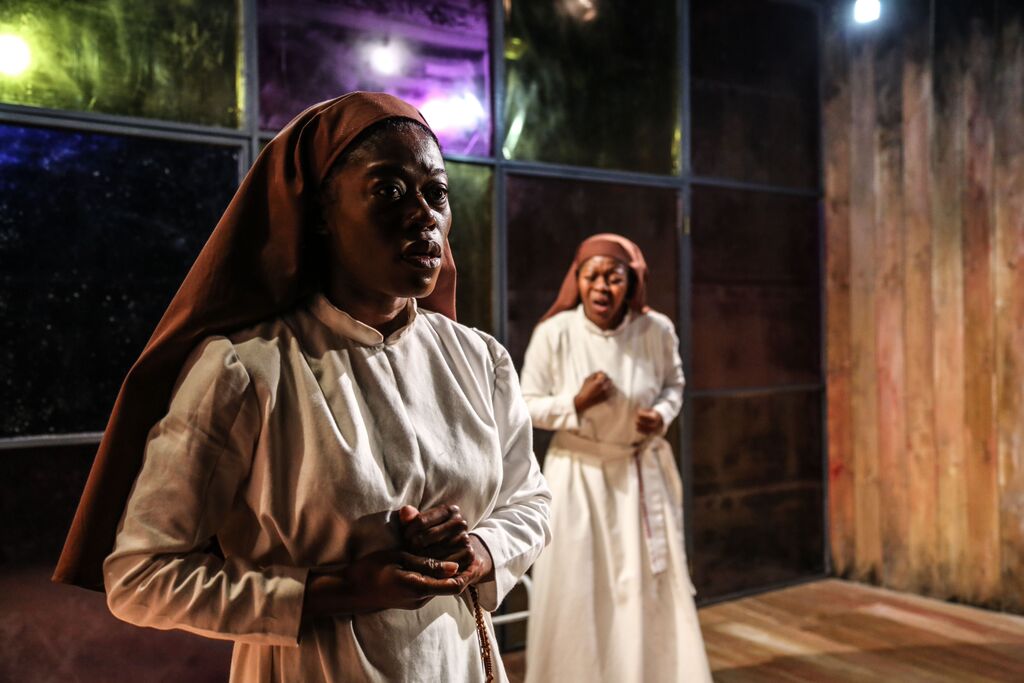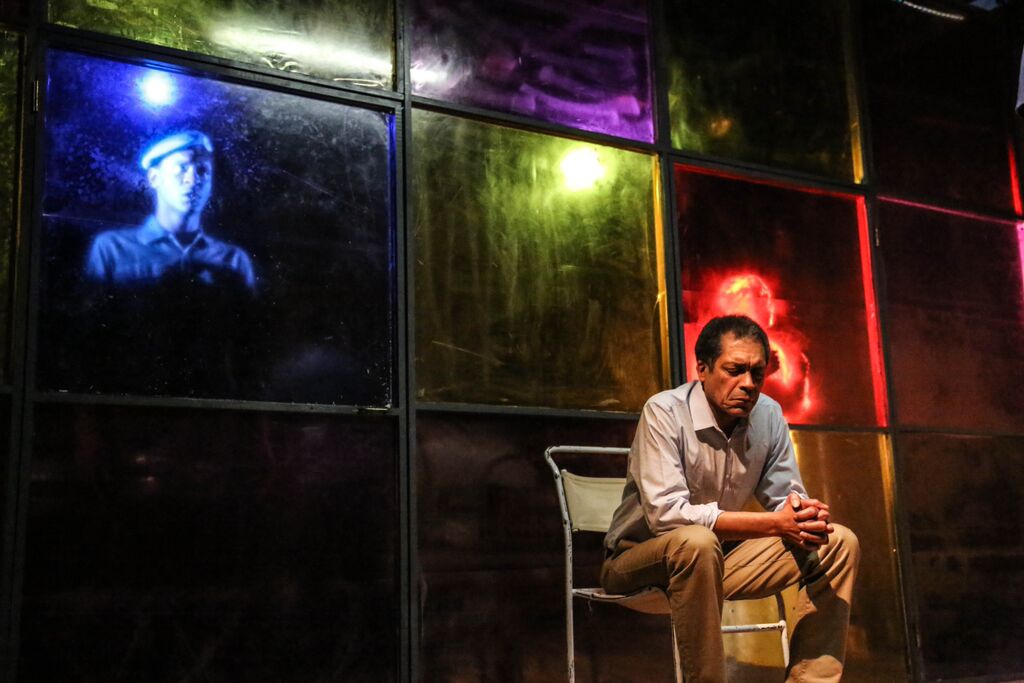ROSIE HEWITSON reviews ‘Sense of An Ending’ at Theatre 503.
Nobody knows the death toll for the Rwandan genocide. The one hundred day massacre of Tutsi Africans, in 1994, was a frenzied response to the assassination of the Rwandan President after historic tensions between the Tutsi and Hutu populations had broken out into a four-year long Civil War. Some sources estimate that as many as one million Rwandans may have been murdered.
It is one of the most unspeakable crimes perpetrated in living memory. Yet, as Joseph Stalin allegedly stated, ‘The death of one man is a tragedy; the death of millions is a statistic.’ Ken Urban’s ‘Sense of an Ending’, Winner of the L. Arnold Weissberger Playwriting Award for Best New American Play, attempts to get to grips with this staggering, incomprehensible figure through the story of one Rwandan village and the massacre that took place there.
A disgraced New York Times journalist, Charles (Ben Onwukwe), arrives in Rwanda to interview Sister Justina (Lynette Clarke) and Sister Alice (Akiya Henry), two Hutu nuns who are awaiting trial in Belgium, having purportedly been complicit in the deaths of hundreds of Tutsi Rwandans taking refuge in their church. His reputation and their freedom rely upon their cooperation.
After spending months trying to arrange a meeting, the nuns have agreed to speak to Charles in the hope that his portrayal of them might persuade the media—and the jury at the Belgian war crimes court—of their innocence. Charles is under pressure from his editor to prove they had no part in the genocide for a world exclusive that will restore his reputation, yet he faces opposition from the local community.
Paul (Abubakar Salim), the soldier with whom Charles stays, is convinced that the nuns are lying about having abandoned the church when the killing began. Eventually he introduces Paul to Dusabi (Kevin Golding), a local man who claims that he and his late wife survived the massacre, and that the nuns did nothing to prevent it. The audience’s initial warmth for the Sister Justina and Sister Alice gradually dissipates; Urban exposes our presumption of their innocence as a benevolent prejudice based on their religious views.
In reality, their feelings are much more conflicted. The nuns are Hutu, conditioned to believe that the Tutsis they sheltered were ‘inyenzi’, cockroaches. While they did murder Tutsis themselves, Sister Alice admits to the racial prejudices that caused the two nuns to stand by as hundreds were massacred in their church, declaring that ‘Tutsis kept us slaves for centuries. Rwanda is a better place with less inyenzi’.
Paul often provides much needed comic relief to Dusabi’s harrowing account of the massacre and Sister Justina’s pleas for forgiveness. As he explains, ‘I cannot cry anymore Charles. I laugh because it keeps me alive.’
At times there is some heavy-handed exposition of the plot, especially at the beginning of the play when Charles bizarrely recaps the events of the genocide to the nuns, a clumsy way of getting the audience up to speed with what happened. Similarly, Charles’s backstory—a relationship with his editor as well as guilt over the death of his mentor on an investigation in Somalia—is perhaps unnecessarily elaborate.
However, for the most part, ‘Sense of an Ending’ offers a nuanced, subtle debate about the fine line between innocence and guilt, Western stereotypes of African conflict and the complex racial, political and generational divides that tore Rwanda apart during the Civil War.
For more information and tickets please click here: https://theatre503.com/whats-on/sense-of-an-ending/
Images credited to Jack Sain.






